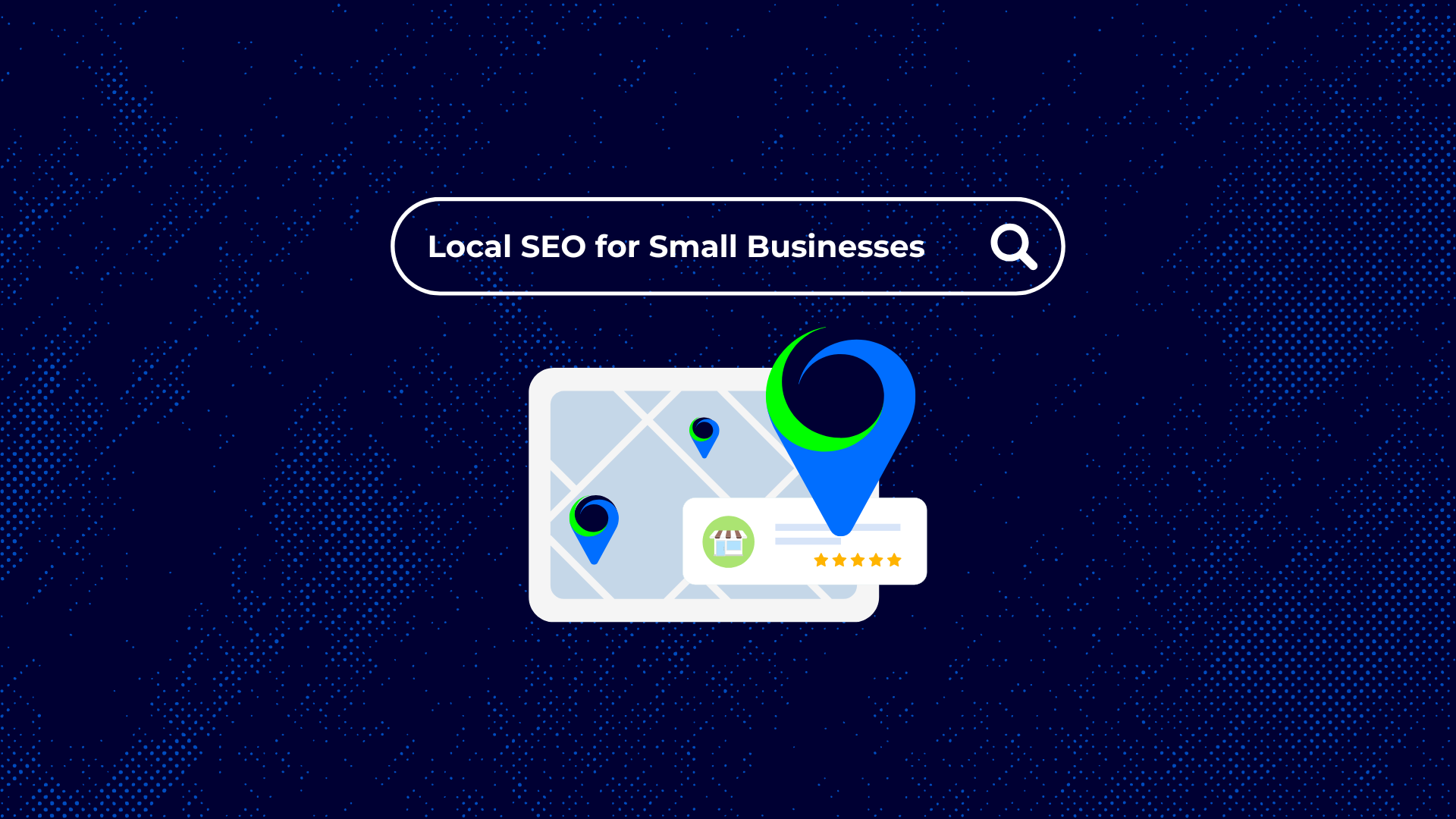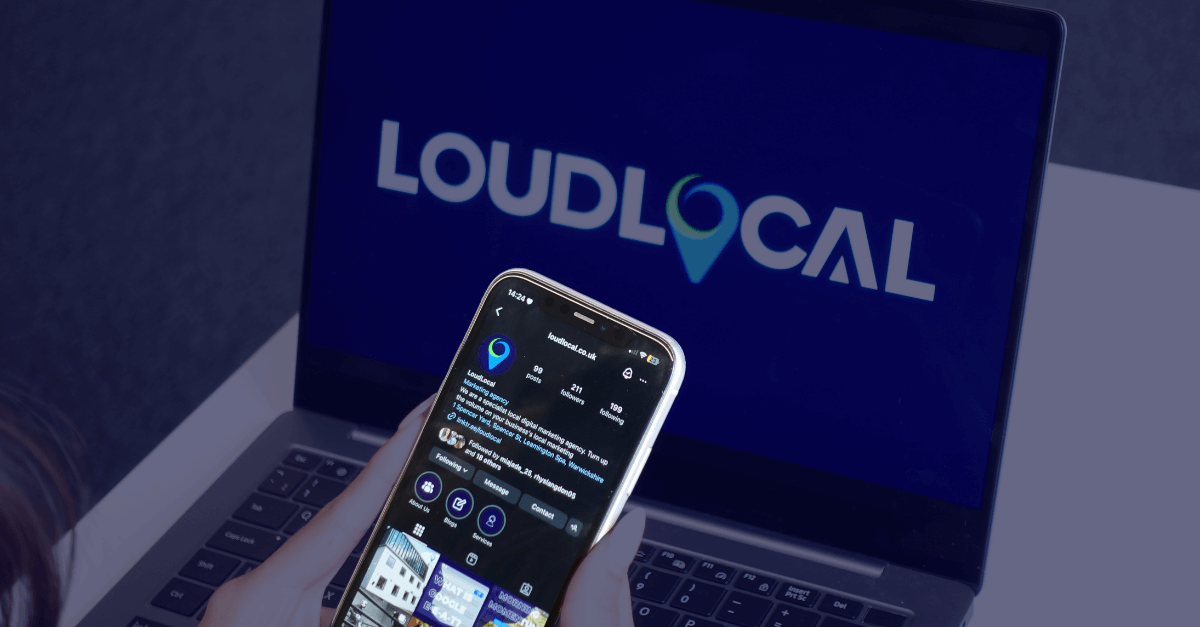The Ultimate Guide to Local SEO for Small Businesses (2025)
Getting found by local customers online isn’t some magic trick, it’s about making sure your business shows up when people nearby are searching for...
Got a question, or need help with something?
A member of the LoudLocal team is on hand to help you.
The Brickyard, Unit 2, Queen's Rd, Kenilworth, Warwickshire, CV8 1JQ
5 Merchant Square, Paddington, London, W2 1AY
10 min read
Leon Hidderley
:
Sep 9, 2024 6:32:28 PM
AI has rapidly become one of the most transformative tools for content creators, developers, and digital marketers. With tools like ChatGPT leading the way, Google Gemini making significant strides, and, most recently, Apple entering the AI arena with the soon-to-be-released Apple Intelligence, the options for integrating AI into digital marketing have never been broader.
AI has so many applications within digital marketing; whether it's generating content in a few clicks, producing unique imagery, writing code, and answering complex queries, AI's capabilities go beyond what traditional search engines can offer. Its potential to enhance productivity in SEO is undeniable.
However, leveraging AI for search optimisation is a nuanced process. In skilled hands and when aligned with best practices, AI can supercharge your SEO efforts, increasing efficiency and effectiveness. But shortcuts can be costly, potentially harming your rankings and undermining your strategy.
In this guide, we'll delve into AI's role in SEO, sharing our insights and experiences from the past few years. We'll also offer tips to help you harness AI tools to their full potential, ensuring you achieve the best possible results.
This article covers the main areas of using AI chatbots like ChatGPT and Gemini for SEO, including some of the pitfalls to avoid. We also have a look at how AI in SEO may evolve in future months and years.
Creating SEO Content using AI, the burning questions
Our top tips for AI-powered SEO
The Future of using AI for SEO
Final Thoughts - Using AI for SEO
We plan to release a future article focused on various AI tools integrated directly into platforms, which often have unique configurations tailored to specific uses. While some tips here will apply, there are subtle differences. For now, we’re concentrating on the two main AI chatbots and virtual assistants: Gemini and ChatGPT.

If this is what you are doing, stop; this is a surefire way to derail your SEO efforts. Please read this article; it's written with you in mind. 😉
Before we get into the details, let's go through some of the things that are important to know. As AI is a relatively new area, there are a lot of myths and confusion on what is the right approach. The answers below are based on industry knowledge, using AI regularly (by monitoring the results) and being directed by significant search engines like Google.
Google's primary goal is to ensure all content aligns with its E-E-A-T guidelines (expertise, experience, authoritativeness, and trustworthiness). This standard applies equally to AI-generated and human-created content.
Over a decade ago, the internet was overwhelmed with low-quality content designed to manipulate search rankings. To combat this, Google refined its algorithms to prioritise relevant, high-quality content that meets users' needs. Today, Google’s stance remains the same: it does not penalise AI-generated content if it meets its quality guidelines. Google continues to reaffirm that content should be helpful to and created with the user in mind, regardless of whether AI is involved.
Search engines are service providers—delivering poor results would push users to competitors. Thus, high-quality AI content can satisfy Google's goals just as well as human-written content, provided it’s relevant, informative, and trustworthy.
One thing that has emerged recently is the use of AI humanisers. These tools are aimed at making the content sound as if a human and not an AI wrote it. These tools are a strange proposition, as they take the content and then use AI to rewrite it as if a human has written it or to bypass AI detectors.
But circling back to the question above, Google doesn't have a preference for who (or what) wrote the content initially. So, these tools do not seem to offer much value at this time. Obviously, AI is a rapidly changing area of SEO, and things may change in the future. But in short, if you genuinely want to humanise your AI content, then get more involved in the content creation process yourself.
A quick tip is if you are sure you want the content to sound more human, then you can even achieve a similar effect by asking your AI to rewrite the content as if you were a human. We don't do this, as we feel just getting AI to churn out content, without any human intervention, is most certainly going to lead you to fall short of E-E-A-T guidelines.
We use both Google Gemini and ChatGPT, and each has its strengths. Both tools are capable and priced similarly (with free tiers and premium options around £20). Choosing between them often comes down to personal preference and specific needs.
Both tools are a godsend when used correctly, so the decision really depends on which features you prioritise.
AI-generated images are still in their early stages. Finding one that truly fits your needs can be challenging. Longer prompts tend to confuse the AI, while shorter ones often result in irrelevant images. When creating content, we always aim to use images that are both relevant and add value to the reader, which can be difficult with current AI tools. While this is an area that will likely see significant improvements over time, at present, AI images feel more like a novelty than a practical asset for SEO.
For example, we asked our AI tool to create an image representing SEO and AI in our brand colours. The result left us a bit perplexed, as it didn’t quite capture what we were aiming for. But I've included it, as it helps illustrate what I'm trying to say 😊

No, we are not sure what it is meant to represent either.
We’re not saying you shouldn’t use AI-generated images, but it’s important to think about whether they truly enhance the reader's experience or are purely decorative. If you do use them, don’t forget to add relevant alt text, both for accessibility and to support your SEO efforts.
AI is revolutionising local SEO by enhancing the accuracy of local search results, helping businesses optimise their Google Business Profile listings, and generating localised content. AI-driven algorithms analyse user behaviour, preferences, and location data to provide more tailored search results, making it essential for businesses to focus on optimising location-specific keywords and conversational searches, especially with the rise of voice search. AI tools can also help automate tasks like managing business listings, responding to reviews, and ensuring accurate information, all of which are critical for improving local search rankings.
Additionally, AI assists in analysing local competitors, identifying keyword gaps, and providing insights into customer sentiment through review analysis. This allows businesses to better understand their local market and adjust their strategies accordingly.
Here are some practical tips on how to use AI effectively in your SEO efforts:
Treat AI like a content assistant that learns from you. These tools are conversational, so it's essential to guide the AI, just as you would a new employee. Be specific: tell the AI who you're writing for, what the content should achieve, and the expected length. Review the output as if you were the audience, providing feedback to improve clarity, tone, and accuracy.
The more detailed your instructions, the higher the quality and relevance of the content the AI will produce for your website.

Yes, we use AI a lot. We spent a lot of time going back and forth with both Gemini and Chat-GPT to get it exactly how we wanted.
Rather than generating an entire article at once, break it down into sections. This allows you to review and correct the content as you go, making the final article more polished and accurate.
AI can save time, but it won’t deliver high-quality content in minutes. There will be some back and forth as you refine the work. A few well-researched, well-written articles will generate significantly more traffic than hundreds of poorly optimised ones.
Mass-producing low-quality content via automation can lead to poor SEO results—don’t expect shortcuts to pay off.
You know your audience best. Read the content through the lens of your customer: Does it make sense? Is it relevant and valuable? Are there any typos? Keep the E-E-A-T guidelines in mind. If you can't review it yourself, ask a colleague to help, but never publish content without a proper review.
Taking this extra step will ensure that the quality of the article is of the highest standard and help with making it.
It might seem like a quick fix to ask AI to optimise for keywords, but this can backfire. AI doesn’t know the full context of your site, keyword density, or internal link opportunities. Instead, let AI understand what you're optimising for, but use your site’s keyword optimisation tool for precise results. Over-optimising can harm SEO and may end up keyword stuffing, which can negatively impact your search rankings.
At LoudLocal, we often write content first and then ask AI for suggestions to improve it. AI can help refine the flow, make content more concise, and identify gaps. Some helpful prompts include:
AI can be a helpful tool for brainstorming keyword ideas before you start writing. Ask it to suggest relevant keywords based on your topic—this can expand your keyword list and guide your research.

AI can be great at suggesting potential keywords to target. Use a tool like SEMrush to see the keyword volumes as part of your research.
Once you’ve identified your target keywords, what’s next? We always start by researching existing articles on the topic, assessing keyword difficulty, and finding ways to make our content stand out. One of our biggest strengths in blog writing is taking complex subjects and explaining them in plain English so that even beginners can easily understand.
We also leverage AI to assist with research by asking it specific questions like, "Do you think this would make an interesting article?" and providing context about our target audience. This helps refine our content strategy and ensure we’re addressing the topics that are aligned with our objectives.
When working on the same article, avoid starting a new conversation every time you ask AI for assistance. AI can remember previous prompts within the same chat, providing helpful context for your project. This means you won’t need to repeatedly explain details, like "I’m a builder from Bognor Regis." AI will already know if you mentioned it earlier.
Keep in mind that starting a new chat resets the context, and AI won’t remember what was discussed. However, most AI platforms save your previous chats as long as you’re logged in, allowing you to revisit them if needed.
.png?width=2364&height=1056&name=Screenshot%202024-09-09%20204438%20(1).png)
It remembered me! AI is great at keeping track of what you have told it so far, which makes it much easier to work with it without continually repeating yourself.
AI isn’t perfect, and it even acknowledges this before you enter a prompt. Always fact-check the information it provides to ensure accuracy. Sometimes, AI may misunderstand your request or overlook key details. Just like working with a human, some interactions are smooth, while others can be frustrating.
AI is a powerful tool in the hands of a knowledgeable user, but it’s essential to understand its limitations. Don’t place 100% trust in it—maintaining oversight is the best way to ensure your work stays on track and avoids any major issues.

You can't say you weren't warned
You know your industry; AI doesn’t. If AI generates poor or irrelevant content, it’s up to you to recognize and correct it.
AI works best when guided by someone with expertise in the field. It can’t make you an expert on a topic you’re unfamiliar with—you still need to research and understand what you’re writing about. Posting content blindly on a subject you know little about can have negative consequences, potentially harming your search rankings and how people perceive your brand.
Always review content thoroughly before publishing to ensure it aligns with your brand and showcases your expertise.

Confirmed. AI has absolutely no idea what industry I work in, and it won't know what industry you work in either. Make sure you guide it so it knows as much about you as possible (that will help with the article of course).
AI is still in its infancy, having only become mainstream in 2023, but it’s evolving rapidly. As time progresses, we can expect more accurate results, a better understanding of prompts, and significant quality-of-life improvements. Just as search engines have evolved over time to serve users better, AI will continue to enhance how content is generated and optimised. Here are some key advancements we’re likely to see:
AI-driven algorithms like Google’s RankBrain and BERT are already shaping how search engines understand and rank content. As AI evolves, it will improve its ability to understand user intent, context, and even voice and visual search. This will make SEO both more precise and more complex.
Personalisation has been a feature of search engines for some time, but AI will take this further by tailoring search results based on individual behaviour, preferences, and location. This means creating content that resonates with specific audiences will become even more critical as search engines prioritise user experience.
In the future, AI tools may offer real-time feedback during content creation, suggesting improvements for SEO, readability, and engagement. These tools will become more intuitive, automating tasks like keyword research and internal linking based on real-time data insights. It is also expected that the tools will be integrated more profoundly into the platforms, providing more context for the AI to suggest suitable approaches.
As voice assistants like Siri, Alexa, and Google Assistant continue to rise in popularity, AI will push businesses to optimise voice search by using more conversational language and long-tail keywords. AI will also improve visual search, making it essential that images and videos are optimised for SEO.
AI will provide more profound, more actionable SEO insights by analysing data trends and predicting keyword performance. This could allow businesses to identify gaps in their content strategies and even forecast ranking changes based on historical data, enabling more proactive SEO strategies.
As search engines become better at understanding user behaviour, metrics like dwell time (how much time someone spends on a page), click-through rates, and user engagement will play an even bigger role in SEO rankings.
AI will help interpret complex user data, which was previously hard to process at scale.
Analytics tools which help interpret the customer experience will become better at interpreting the data, what is happening and provide actionable insights into what changes will assist in improving the UX (user experience).
AI will increasingly automate some of the more routine SEO tasks like meta tag creation, keyword placement, and backlink generation. This will free up time for SEO professionals to focus on strategic decisions and high-level analysis.
Many businesses currently optimize for keywords and topic clusters, but it's becoming increasingly important to rank for longer, more specific search terms, known as long-tail keywords. With the rise of voice search, content needs to be optimized to match how people naturally ask questions aloud rather than how they type queries. Utilising AI for this will be essential; it will assist by offering guidance on conversational language and helping identify the best approaches to improve your chances of reaching your target audience.
It’s exciting to think about what AI has in store for the future of SEO, as it represents a major leap forward in digital marketing. However, one thing remains certain: search engines like Google and Bing will continue to prioritise well-written, customer-focused content that demonstrates expertise and comes from a trusted source.
We hope you have enjoyed reading this article as much as we enjoyed writing it. Have I missed anything, or have your own experience of AI? Then get in touch, share
If you found it interesting, then be sure to check out our article on SGE - A fascinating look into the exciting world of AI-generated search.
If you are a business looking for support from an agency that speaks in plain English, is totally transparent and offers unrivalled flexibility, then why not check out our SEO services page?
Thank you for reading
Leon

Getting found by local customers online isn’t some magic trick, it’s about making sure your business shows up when people nearby are searching for...

Running a small business is a full-time job in itself, and finding time for social media can feel like an extra task on the list. But here’s the...

Running a trades business takes a lot of time and energy. You’re busy on site, chasing quotes, and keeping customers happy. But while you’re focused...
%20(1).png)
4 min read
For years having a robust SEO (search engine optimisation) strategy has proven to be an essential element of a digital marketing strategy...

When we hit economic crisis, often, marketing is the first budget to be cut. However, keeping on top of marketing within your company is essential to...
First Things First - What is Bounce Rate? Bounce rate is a commonly used metric to determine whether your site "holds up" so to speak. When a user...